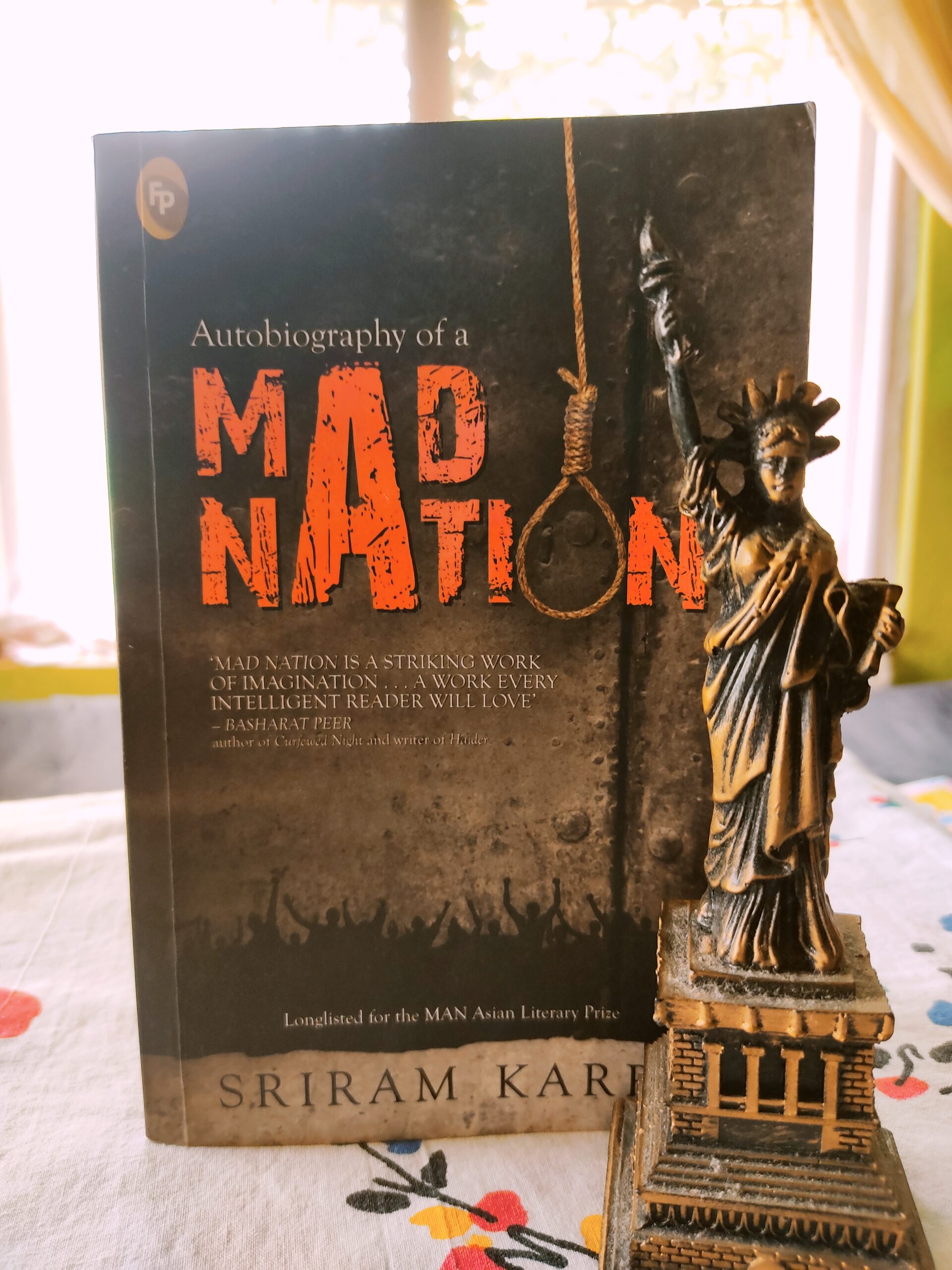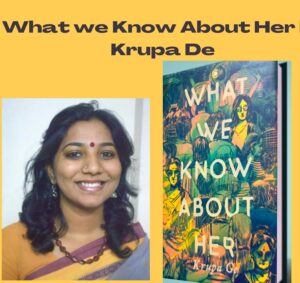Book: Autobiography of a Mad Nation
Author: Sriram Karri
Publication: Fingerprint
Pages: 384
Price: Click the link
Review Rate: 3
Introduction:
A journalist by profession, Sriram Karri begins his journey as a writer with his debut novel, The Spiritual Supermarket in 2007. But his acclamation as an author comes into the limelight with the book: The Autobiography of a Mad Nation, 2014.
The first thing about the book is its cover page and obviously the striking nameplate hanging firmly and ominously in red colour, with the scratches of casual discomfort. There are a shouting crowd raising their hands in the darkness below.

Storyline:
“I was born in a mentally retarded nation.”
The book opens with the angry tirade of the protagonist, Vikrant Vaidya, a twenty-four years old youth, waiting for his capital punishment in the charge of murdering a neighbour boy, Iqbal. He sent a letter to the president appealing his intervention in the case to prove his innocence.
“Justice! How much nobler this word, sir. How noble for those who understand this justice thing, more than mercy or forgiveness can ever be, in its fullest implication.”
The court was ready to send him to gallows quiet in an unusual hurry. And that was suspicious. Anyway, the proof that the convict sent to the President spurred him to probe the case personally and with a secret hand. He engaged Vidyasagar, retired head of CBI to investigate the matter within a very short period of time.
And as Vidyasagar headed through the case he realized, “larger mischief was afoot.”
Plot and panorama:
Woven tactfully within a brief tapestry all the plots and subplots are active enough to highlight the intrigues and conspiracies hidden under the apparently crystal clear case.
The book entraps myriads of histories within a single frame, from Emergency to Anti-Sikh riot, Ram Janmabhoomi controversy, Mandal Commission, Brain Drain, Orthodox Political interest over humanity, the butchery of the girl child, Babri Masjid demolition Godhra Riot and what not. It is a cinematographic representation of fake and manipulated history. Chapter by chapter Vidyasagar goes on detangling the knots that tie the whole fabric of the story.
And in the course of his investigation, he pulls in personalities from all the spheres of lives from cricket to politics to religion and even from the daily lives to pull the snake out of the hole.
Narrative:
Multiple narratives are engaged in this book to draw out the corrupted social structure, bigotry of political paradigms. It is a blatant documentary of fake and fabricated democracy where every narrator keeps space with changing timelines.
Tone:
Though the book unfolds serious issues the narrative voice is not priggishly preaching.
The sarcastic tone with a brilliant touch of humour is wafting through the pages. The strong intellectual voice of the protagonist is so powerful that it strips the administration to sheer nakedness, exposing all its heinous socio-political pits and the rotten body of politics.
Allusions:
There are many a book within this book. Yes, I just collected most of the allusions and references that are mentioned directly or obliquely.
a. The Catcher in the Rye by J.D.Salinger.
b. Crime and Punishment by Fyodor Dostoevsky
c. The Kite Runner by Khaled Hosseini
d. 1984 by George Orwell
This proves that the author is not only a famed journalist but a savant.
Alvina’s Verdict:
-
The things I don’t like: The crowd of characters and drum roll of incidents sometimes make it a boring reading. Language turns a bit cryptic and verbose. Chapter after chapter the characters are involved in rambling, making me confused and hopeless. The Sensex of the novel cannot keep its bridle at the same tautness till the end.
-
The thing I love most: I love the angry rant of Vikrant Vaidya the most. He is the Jimmy Porter of deceived democracy. His intellectuality, deep-rooted loathing for the supine socio-political system of the country is my own, perhaps of each victim of this corroded system. The tarnished brains of us fall in thousand pits with the sarcastic curse of Vikrant. It elicits extreme response and turmoil in my heart.
-
“Why did the greatest of religion split into denominations and classes and sub-groups? Why was Renaissance not forever? Why did the Age of Enlightenment wither? Why did the White Man persecute the Jew, the Black, and the Brown?”
-
“Why was Adolf Hitler not assassinated by his own countrymen who truly loved Germany?





